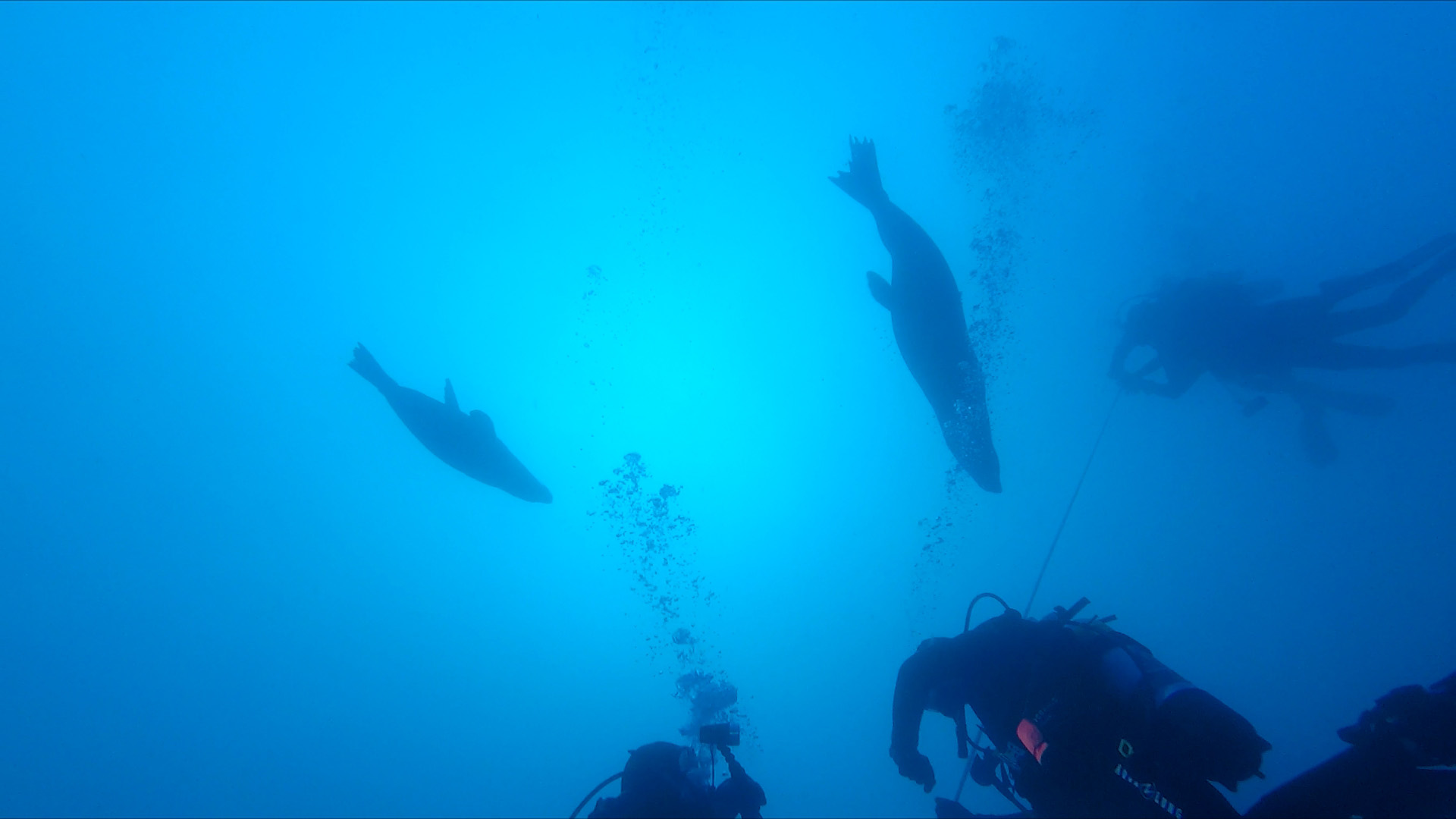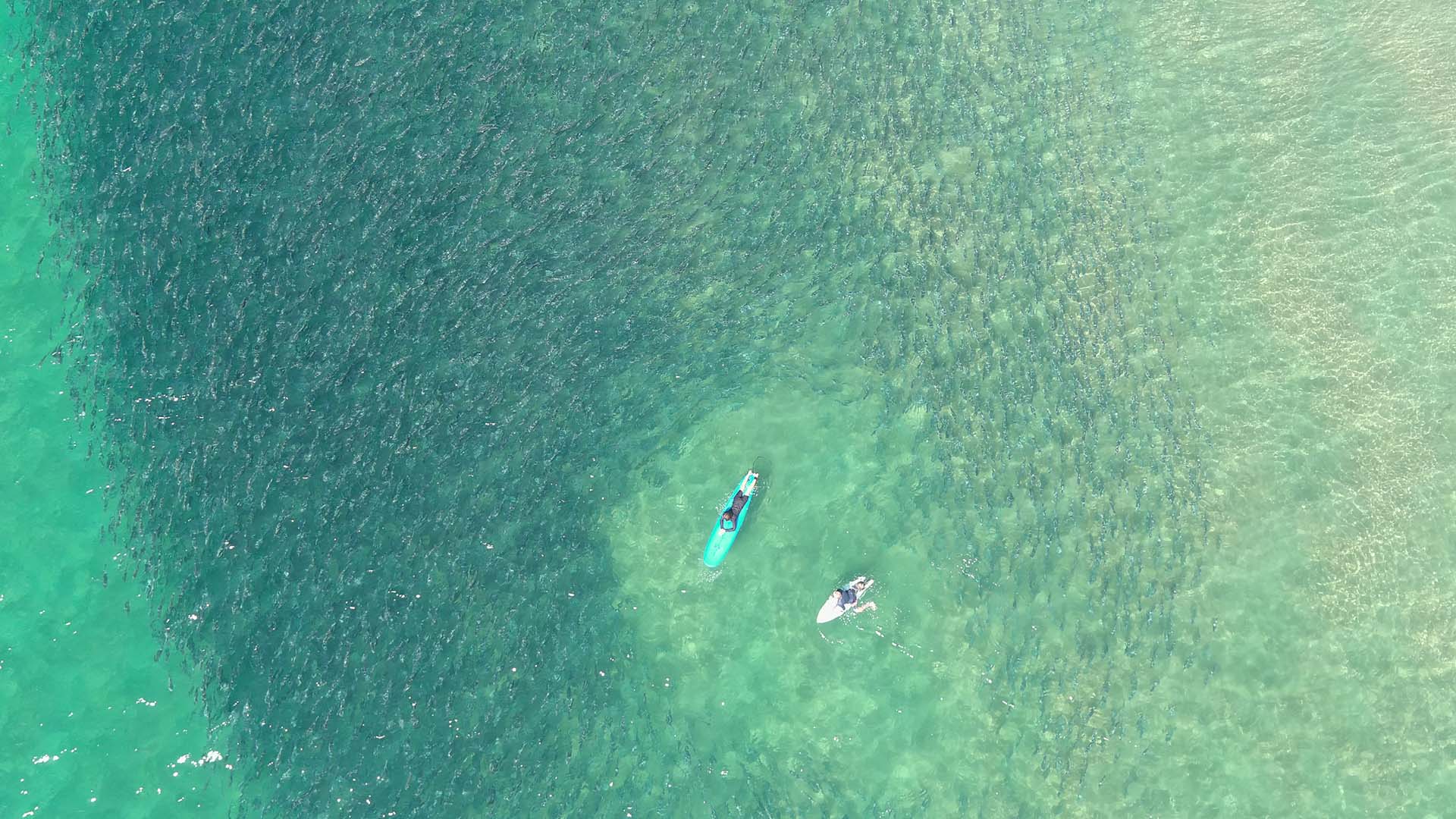June 8, 2021
World Ocean Day: Acting locally and globally
While much remains to be done and significant threats abound, not least climate change, we should also acknowledge the successes we have had
There are many staff at the University of Wollongong’s Australian National Centre for Ocean Resources and Security (ANCORS) who, like me, live very close to the coast and who fish, swim, dive or surf. It’s a fortunate life to be able to live so close to the sea and work on solutions to many of the issues which confront the lives of ocean dependent people both locally and abroad.
The Illawarra has an amazing coast, with lots to see both above and below the waves. We see increasing numbers of whales and seals and some people are complaining about too many sharks!
Over the summer there were large shoals of Australian salmon and more dolphins than I recall seeing in 20 years. The biomass of lobsters along the NSW coast is the largest it’s been since the 1960s.
The amount of plastic I see on the beach is negligible compared to what I have seen in some other countries.
The volume of sewage pollution entering the sea off our coast has declined significantly over the past couple of decades. The Bellambi and Port Kembla treatment works now only discharges during periods of high rainfall as most of the sewage is piped to the steelworks for re-use.
Sometimes it’s easy to get depressed about all the problems and forget the gains.
The internet is full of stories about the world’s oceans being in terrible trouble and pushing messages that the only way of fixing the problems is to stop doing everything we do now, such as eating fish. How does this square with what we see?
It’s true that much remains to be done and significant threats remain such as climate change, which is already affecting the marine environment off our coast, but World Ocean Day provides an opportunity to think about the wins.

Divers and seals off Big Island (aka "Rabbit Island") in the Five Islands Nature Reserve. Main picture: Surfers with a large school of salmon off the Illawarra coast.
While the turn-around for whales and seals resulted from a ban on hunting, the re-bound in the number of lobsters is due to a mix of tough decisions and sacrifice by regulators and fishers, supported by good science.
This is also true for some other fish species like bluefin tuna and snapper, which are increasing in numbers as well. As is the case for the reduction in ocean sewage disposal, the gains may take many years to bear fruit and we forget all the hard work and the wins because they lost in the noise created by the latest crisis in the media.
A recent streaming program exhorted us to stop eating fish and it supported this advice by focusing on a plethora of issues in the world’s oceans, including plastic pollution, overfishing, illegal fishing and mistreatment of workers in the seafood sector.
It simplistically assumed that a plant-based diet was a better option without exploring how the same issues we can find in the ocean can also be found on the land.
In Australia, for example, land clearing is a major source of biodiversity loss and many species and ecological communities on land are listed as threatened or endangered, with agriculture the most common threat.
For some plant communities there is only 5 per cent of the original area left and Australia has the worst record globally for the extinction of small mammals.
There have been regular media stories about illegal land clearing and water theft plus mistreatment of farm workers.
Turning our back on eating fish and looking to the land may not be a step forward for the planet and simple solutions may have unintended consequences.
The gains for the ocean are testimony to the hard work of all those involved, whether it be conservationists, fishers (commercial and recreational), scientists and/or natural resource managers. A mix of commitment, skillful leadership, goodwill and some funding makes all the difference.
ANCORS staff engage in solutions to ocean issues across the world but especially in the Pacific. A multi decadal engagement in the management of Pacific tunas has helped shape the sustainability of fish stocks and the flow of benefits to Pacific Island Countries.
In more recent years a collaboration across governments and NGOs identified sanction busting fishing by Chinese fishing vessels in the waters of North Korea which impacted local fishers and squid stocks. The study triggered management intervention that reduced fishing effort, with benefits for squid stocks.
The solutions may be complex and take time but that’s just how it is. Moreover, it’s more than likely that a win is the result of the efforts of a variety of players and random events but, like a Jenga puzzle, the removal of one piece may put the whole effort at risk.
Sometimes the wins may be controversial but they may be vital to the long terms sustainability of fish stocks. Cutting fishing effort commonly doesn’t win friends but for many fisheries in the world painful cuts in catches and effort are needed to curb overfishing and rebuild fish stocks.
Acting locally and globally can benefit a small fishery like local lobster and a giant fishery like Pacific tunas.
On World Ocean Day this year celebrate the gains made in managing our oceans better. Its way more fulfilling to celebrate the successes than focusing on the gloom.
UOW academics exercise academic freedom by providing expert commentary, opinion and analysis on a range of ongoing social issues and current affairs. This expert commentary reflects the views of those individual academics and does not necessarily reflect the views or policy positions of the University of Wollongong.
